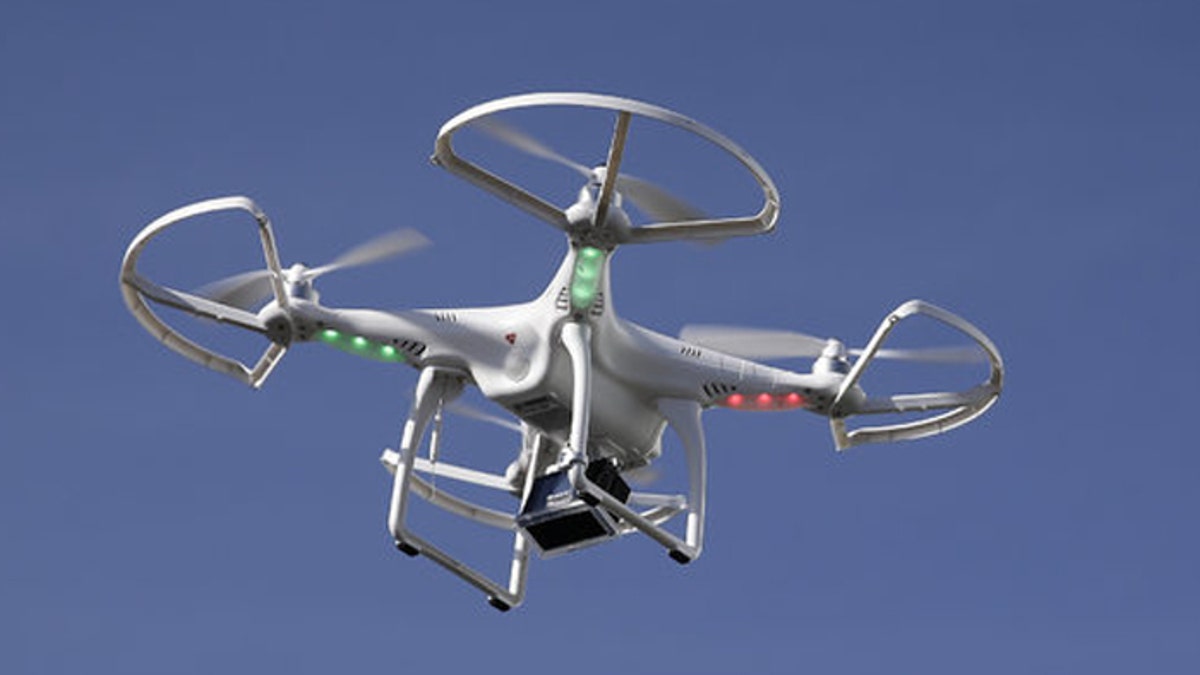
A drone such as this one can be a big advantage to a hunter, but most sportsmen consider hunting with drones cheating. (Associated Press)
Some states are taking steps to shoot down drone-assisted hunting before the airborne gizmos catch on with hunters and alter forever the pursuit of big game under traditional rules.
Alaska this month became the third state recently to take action. On March 17 the Alaska Board of Game approved a regulation that would prohibit hunters from spotting game with unmanned aerial vehicles, or drones. It is expected to become law July 1.
Montana banned the use of drones in hunting last month. Colorado did so in January. Idaho and Wisconsin say drones are covered under current regulations that prohibit the use of aircraft to hunt, to harass hunters or to disturb wildlife. Others states could soon impose bans. In Wyoming, New Mexico and Vermont, local hunting groups have petitioned wildlife officials to outlaw the UAVs.
[pullquote]
The issue unites two groups which are typically at odds. Animal rights activists believe drone-assisted hunting is cruel, while many hunters' groups believe it is cheating.
“We feel that the use of drones to aid in hunting is inappropriate and overwhelming technology that would essentially undermine the concept of fair-chase hunting,” said Eric Nuse, a former executive director of Orion, the Hunter’s Institute. Nuse is leading the effort in Vermont to bar drones.
Nuse said it does not appear that use of drones in hunting is widespread. But his group and others are worried that it could catch on as drones become more prevalent and less expensive.
“We want to make sure it doesn’t get a foothold,” he said. “We see this as a great chance for abuse and before people have invested a lot of money in this technology let’s speak up first.”
Tim Brass, a Colorado spokesman for Backcountry Hunters & Anglers, said the use of a drone gives a sportsman an unfair advantage.
“We prefer not to see regulations as a general rule,” he said. “Sportsmen have a tradition of policing themselves. This was part of our effort to do that.”
Brass said he was prompted to do something after seeing a YouTube video shot in Norway. The video captures a large moose being stalked from above by a drone.
After the Colorado Parks & Wildlife Commission voted to ban UAVs for any hunting or scouting, Brass and his group pointed out that drones have many legitimate potential uses in science, agriculture and search and rescue.
“However, hunting should remain an activity of skill and woodcraft, not just technology,” they said.
Capt. Bernard Chastain, operations commander of Alaska Wildlife Troopers, told FoxNews.com his agency pushed for the drone ban after hearing about a moose kill in August 2012 involving a drone.
He said there were no other details about that particular hunt because at the time it was not illegal.
He said it would cost a hunter about $2,000 to rig-up a GoPro camera to a quadcopter and link it to a computer.
“It’s not too hard to do,” Chastain said.
Under Alaska rules hunters can’t shoot a moose or bear the same day they spot the animal from a plane. They have to wait until 3 a.m. the following day. Chastain said the Board of Game considered a similar rule for drones, but rejected it.
“With a smaller aircraft, it would be much more difficult to see operating,” he said. “There was some concern that it would be easy to operate without being detected.”
Kristy Tibbles, executive director of the Board of Game, said no one spoke in opposition to the ban.
In December, FoxNews.com profiled a Louisiana exterminator who was using a drone to hunt feral pigs, which cause an estimated $1.5 billion damage to crops and wildlife in the South annually.
Nuse said a hunt for nuisance pigs like that was not what his group was seeking to ban.
“That’s not sport hunting,” he said.
